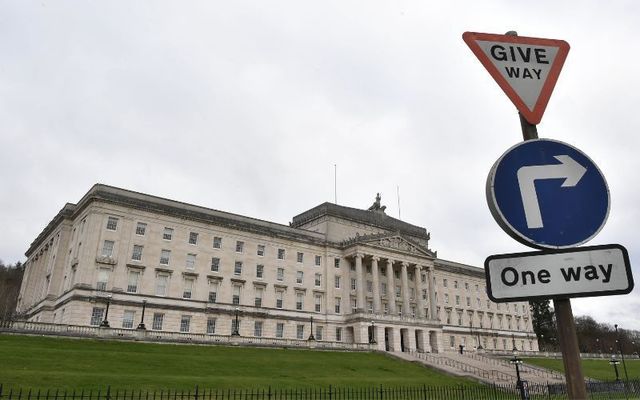Several weeks have passed since the Northern Ireland elections where the overwhelming percentage of voters sought a resumption of the Northern Ireland Assembly at Stormont and a return to politics as usual.
The crisis which is well into its second year seemed set to be resolved. The Democratic Unionist Party (DUP) maintained its vote and saw off the Traditional Ulster Voice (TUV) party which threatened to dig deeply into their vote.
President Clinton and President Biden have come and gone. British Prime Minister Rishi Sunak has pledged more economic support as soon as the Assembly resumes. And the result of the vote seemed to be the last tool put in place.
However, there has been nothing but silence from Jeffrey Donaldson, leader of the DUP. Which means we must once again fear the inevitable – an Ulster unionist leader saying a loud “no” to change when all around are voting in favor of it.
The Sinn Féin vote in last month’s election has not been taken seriously by the Irish media which has led to a continuing tolerance for Donaldson’s obstructionist tactics.
Alliance Party leader Naomi Long described the Sinn Féin vote as “a political revolution.”
But on the day after the count, The Irish Times carried as its lead feature on the North a profile of an 88-year-old SDLP politician, Brid Rodgers, long retired, calling for understanding for unionists and for Sinn Féin to wait their turn.
It was an extraordinary decision, as was the Times’ profile of the Ulster Unionist Party (UUP) which is now by far the weaker of the two main unionist parties. But for some reason, the Times reckoned that the UUP deserved recognition based on its role in securing the Good Friday Agreement.
It has become obvious what is at stake here. Both Donaldson and the Times believe the election was an illusion and that someday soon order will be restored by a renewed UUP, joined by Donaldson and moderates such as Rodgers.
That was how the old Northern Ireland was governed. But that dog will not hunt anymore. In fact, he’s permanently disabled.
Last month’s election, in fact, was a debacle for the SDLP and the UUP. Both parties are highly unlikely to ever come near power again.
Meanwhile, inevitably, Sinn Féin has sent their party leader in the North, Michelle O’Neill, to Washington this week, prior to a meeting between Biden and Sunak at the White House, to lobby for American support for restoring the Stormont Assembly.
The lack of unionist ability to see a way forward inevitably means that their percentage of the vote will continue to sink as the nationalist vote grows, which it will according to demographers.
The question must be asked – what part of yes does Donaldson not understand?
In fact, Ulster can never say no again. Unionists simply don’t have the votes for it, and southern dreams about a revival of the SDLP and UUP are as unrealistic as Camelot.
The fact is conditions will only get worse for unionists, the longer they stay out of the Assembly.
Strangely enough, one power that the British government does have is to cut off salaries to any member who is not attending the Assembly. This should have been done a long time ago. If a politician doesn’t wish to carry out a mandate to work, then why should they be paid?
As long as Donaldson continues to say no in any way he can, the more likely saying yes to a border poll in the near future becomes.
*This editorial first appeared in the weekly Irish Voice newspaper, sister publication to IrishCentral.




Comments